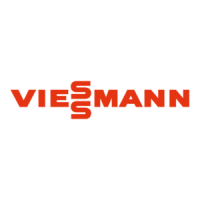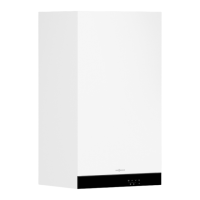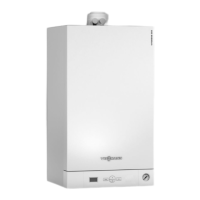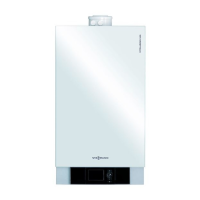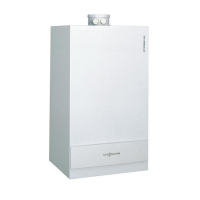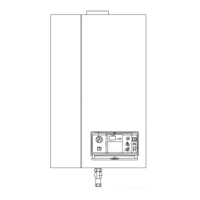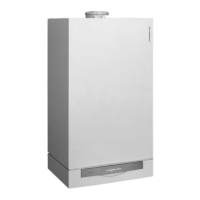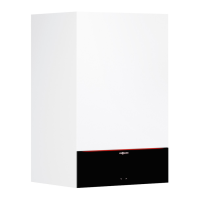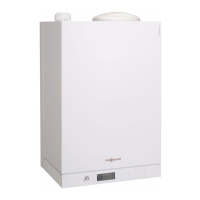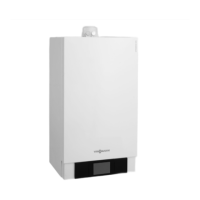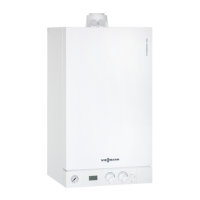What does fault F8 mean on a Viessmann Boiler?
- MMiss Katrina Brown MDAug 27, 2025
If your Viessmann Boiler is displaying fault code F8, which indicates the fuel valve closes too late, you should check the gas train and both control paths.
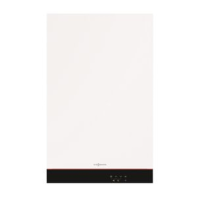




What does fault F8 mean on a Viessmann Boiler?
If your Viessmann Boiler is displaying fault code F8, which indicates the fuel valve closes too late, you should check the gas train and both control paths.
How to troubleshoot fault F9 on Viessmann VITODENS 050-W?
If your Viessmann Boiler displays fault code F9, it means the fan speed is too low during burner start. You should check the fan, fan connecting cables, and power supply. Also, check the fan control.
What should I check if my Viessmann Boiler shows fault F4?
If your Viessmann Boiler displays fault code F4, you should check the gas train (ensure the control voltage is 230 V) and verify the gas supply pressure.
How to fix fault F2 on Viessmann VITODENS 050-W?
If your Viessmann Boiler is showing fault code F2, which indicates the temperature limiter has responded, you should: 1. Check the heating system fill level. 2. Check the circulation pump. 3. Vent the system. 4. Check the temperature limiter and connecting cables.
What causes fault code F4 on a Viessmann VITODENS 050-W?
If your Viessmann Boiler displays fault code F4 and there's no flame signal, you should inspect the ignition/ionisation electrode and its connecting cables. Also, verify the gas pressure, gas train, ignition components, ignition module, and ensure the condensate drain is clear.
What does fault code 18 mean on Viessmann Boiler?
| Model | VITODENS 050-W |
|---|---|
| Category | Boiler |
| Energy Efficiency Class | A |
| Max Working Pressure | 3 bar |
| Electrical Connection | 230 V / 50 Hz |
| Type | Wall-mounted |
| Fuel Type | Natural gas/LPG |
| Dimensions | 700 x 400 x 300 mm (H x W x D) |
| Connection for Heating Flow/Return | 3/4 inch |
| Connection for Gas | 1/2" |
| NOx Emissions | Class 5 |
Essential safety guidelines to prevent accidents and material losses.
Explanation of danger, warning, and note symbols used in the manual.
Safety rules for connecting and operating the appliance, including contractor requirements.
Guidelines for safe interaction with the appliance during use and maintenance.
Information on system commissioning and the appliance's intended applications.
Definitions of terms and details about the system's preset factory configurations.
Advice on how to optimize energy consumption for heating and hot water.
Identification of display and control elements on the appliance.
Explanation of symbols and basic operation using the control interface.
Details on operating modes like controller-based and weather-compensated.
Step-by-step guide for safely starting the heating system.
Instructions for safely shutting down the entire heating system.
Specific procedures for shutting down central heating and domestic hot water.
Adjusting heating water and boiler water temperatures for central heating.
Setting room temperature based on outside conditions.
Procedure for adjusting the temperature of domestic hot water.
How to initiate the test mode for flue gas inspection.
Procedure for terminating the emissions test mode.
Causes and remedies for insufficient room heating.
Causes and remedies for excessive room heating.
Troubleshooting steps for hot water supply problems.
Guidelines for cleaning the appliance and its regular maintenance.
Maintenance recommendations for the boiler and safety notes for the power cable.
Definitions of technical terms used throughout the manual.
